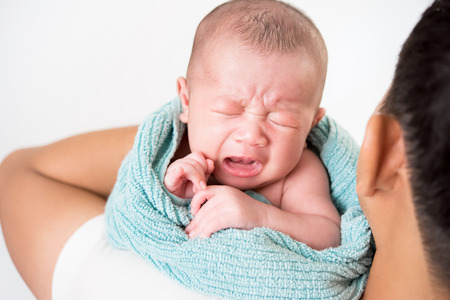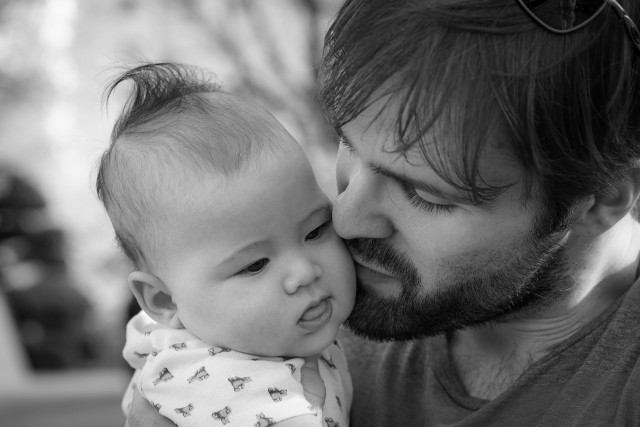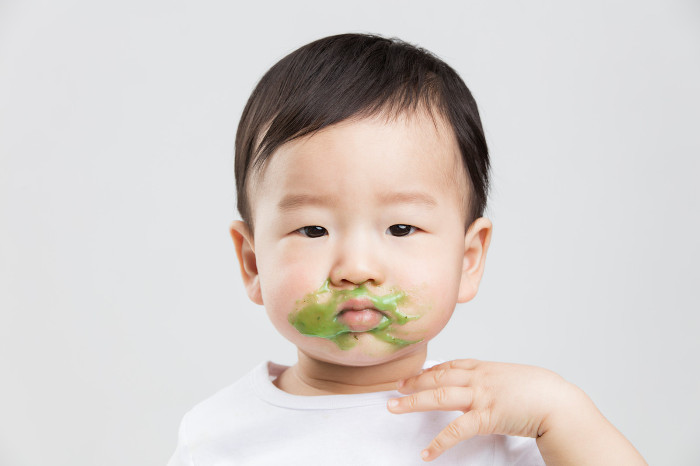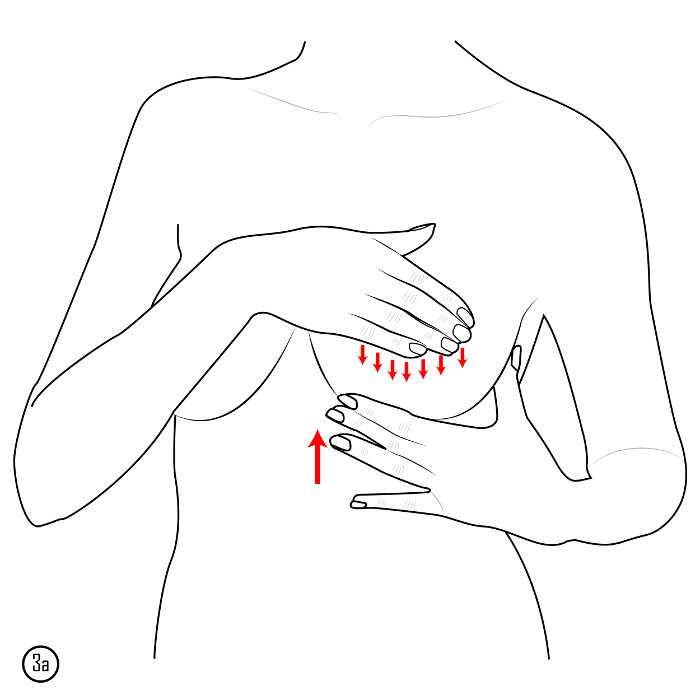Spitting up is a normal occurrence and not a concern for most babies. It even is more of a laundry problem than a medical one. But do you know what it is and how to help your little one?

What is Spit Up?
Spitting up is milk coming straight back up due to an overflow; generally, a gentle flow of the fluid.
What Causes Your Baby To Spit Up?
Spitting up means the baby has eaten more than her stomach can hold. Sometimes they may spit up while burping or drooling and some babies spit up more than others. Some babies spit up more than others and sometimes while burping or drooling.
Spitting up usually occurs right after baby eats, but it may also occur 1 – 2 hours after a feeding.
Spitting up usually peaks at 2 – 4 months and most healthy babies will outgrow spitting up within 7 – 8 months.
While spitting up can happen for several reasons, many times the reason may be determined.
Swallow too much air: Babies may develop gas because of swallowing too much air while crying. These gas bubbles in the stomach can trap some of her meal.
Burps: When the air comes back up as a burp, so does the breast milk or formula.
Overfeeding: Overfeeding can lead to even more reflux as their digestive systems are still immature.
Generally, breastfed babies tend to spit up less than bottle-fed babies, because they usually take in only as much milk as they need. Also, as they are nursing, they will swallow less air than from a bottle.
Spitting Up vs Vomiting
It is important to know the difference between spitting up and vomiting because babies younger than one year of age are at greater risk of dehydration from either one. (Source)
Spitting up is milk coming straight back up due to an overflow, so it does not contain large amounts of food and fluids. Vomiting is more forceful, usually shooting out rather than dribbling out, and is of a larger amount.
How To Prevent Baby From Spitting Up
- Don’t overfeed
You can avoid overfeeding her by trying to feed her before she gets frantically hungry. Smaller, more frequent feedings are easier to digest. (Source)
- Carry your baby in an upright position

Avoid feeding while your infant is lying down and keep him in an upright position during and after feedings. In fact, you should hold your tot in an upright position for 20 to 30 minutes after each feeding.

- Take short pauses in between feedings
Taking pauses or any change of position will slow your baby’s gulping and reduce the amount of air she takes in. If she’s nursing, burp her when she switches breasts. If bottle-feeding, burp your baby at least every three to five minutes during feedings.
To Worry, or Not to worry?
Spitting up is normal for a baby’s growth and development. But there are certain symptoms to note if your baby’s condition is getting more serious:
- Refuses feedings repeatedly
- Has breathing difficulties
- Leads to other issues (discomfort, fussiness or weight loss)
- Spits up increases in volume or force
- Spits up green or yellow fluid or blood
- Has blood in his/her stools
By Lynette Kwan.
* * * * *
Like what you see here? Get parenting tips and stories straight to your inbox! Join our mailing list here.
Want to be heard and seen by over 100,000 parents in Singapore? We can help! Leave your contact here and we’ll be in touch.




















































